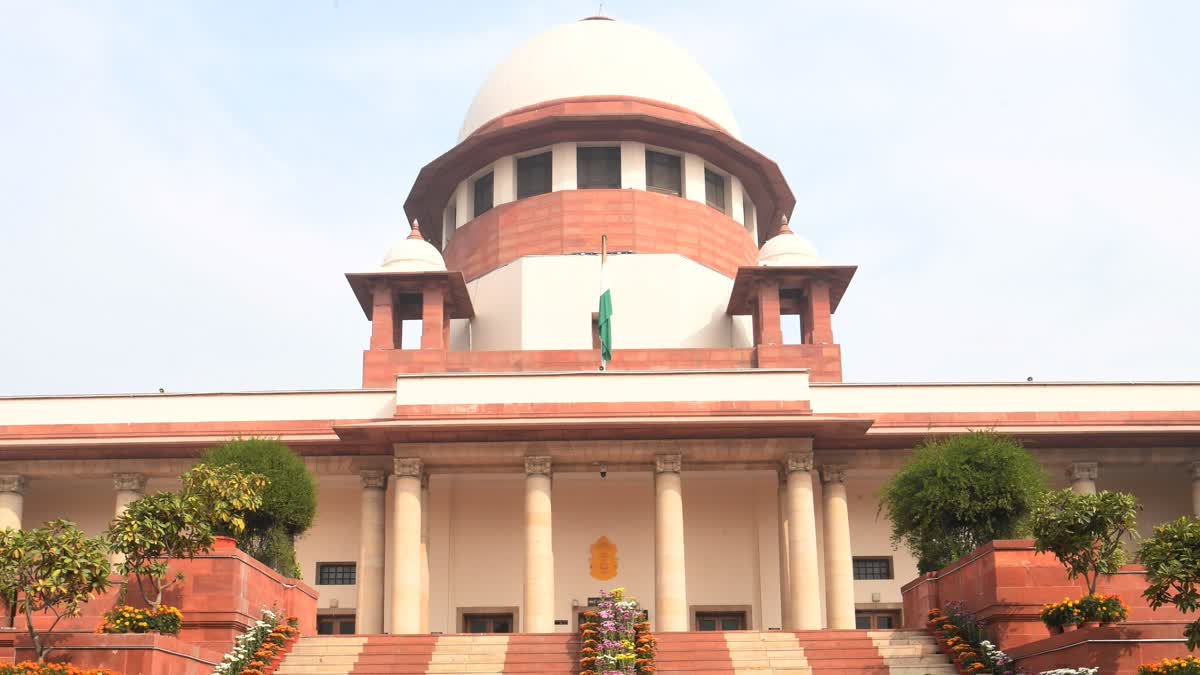New Delhi: The Supreme Court Wednesday asked the Attorney General (AG) R Venkataramani, why was the Kerala governor sitting tight on bills passed by the state assembly for two years? “There is accountability by the governors”. The apex court said it will leave the matter to the sagacity of the Kerala Chief Minister (CM) and the Governor, otherwise, the court is here to lay guidelines, regarding the power of the governor.
Senior advocate K K Venugopal, representing the Kerala government, vehemently submitted before a three-judge bench led by Chief Justice of India D Y Chandrachud that guidelines should be formulated by this court on the power of the Governor. The AG opposed submissions by Venugopal and contended that the frame of the petition is limited to directions to the Governor and broader issues cannot arise out of this petition.
Kerala government moved the apex court claiming inaction on the part of the Governor in relation to as many as 8 bills passed by the state legislature and presented to the Governor for his assent under Article 200 of the Constitution.
The bench, also comprising justices J B Pardiwala and Manoj Misra, noted that the reliefs sought by the state of Kerala comprise of: a declaration that the Governor is bound to dispose bills presented within reasonable time; the Governor has failed his constitutional duty; and, mandamus to Governor to give assent to pending bills.
The bench noted that no reason has been given by the Governor to keep the bills pending. As we have observed in the Punjab judgement, the power of the Governor cannot be utilised to pause the law-making exercise of the legislature, it added. The apex court suggested that if the Governor says that he will invite the CM, let the CM and the minister who moved the bill, both meet the Governor. The bench said that it will record that the Governor will discuss the matter with both the CM and the minister in charge. Venugopal said the Governor wants a face-saving exercise.
The bench queried Kerala government counsel, is this a plea to resolve the issue or settle political scores? Find a way out and these are matters to be settled by sitting down. Venugopal said let the bills be discussed by the minister in charge, instead of the CM. CJI replied, how can the CM say that as head of the state, I know nothing about the bills.
Venugopal vehemently argued that a law is passed and for two years it cannot be implemented, why? I think it is tragic that the Governor stands in the way of implementation of the law. Venugopal said instead of working with the assembly, the Governor is acting as an adversary.
The AG said every bill is not a people-friendly bill and there are certain bills, of course, the Governor cannot keep it pending. The CJI asked the AG, “Two years, 2021 bill…”. The AG there is a political dimension and non-political dimension and not keen to open up about it. The CJI told the AG there is some substance in Venugopal’s argument, “What is the Governor is doing for two years sitting tight on these bills…we get into it. There is accountability by the Governors. Accountability also by us towards our constitutional duties(sic)…”
The CJI said, “K K Venugopal seeks an adjournment in order to move an amendment to the petition under Article 32 since broader issues which are raised as a result of subsequent developments in the matter are sought to be placed before the court. We accordingly adjourn the proceedings”.
Opposing it, the AG said not in this matter and there should be a proper petition (to lay down guidelines regarding the power of the Governor). The CJI said, “We have 8 live bills….the other bills were pending for two months. These were pending for two years. If we were to dispose of the petition, we would be doing disservice….”
Concluding the hearing, the CJI told the counsel for the governor and the state government, let us hope some political sagacity takes over to resolve the issue, otherwise, we are here to lay down the law and do our duty under the constitution.
At the beginning of the hearing, the state government informed the court that now 7 out of 8 bills have been sent for Presidential assent, and this is just to delay the case. Venugopal said that the Governor can do so only if there is an inconsistency with a central law. The bench noted that the primary grievance worked out after the Governor acted on 8 bills, and asked, but why did the Governor act only after the court issued notice?
The top court permitted the Kerala government to amend its plea to seek issuance of guidelines for the governors on grant or decline of assent to the bills passed by the assembly in a time-bound manner.
Venugopal argued that the time has come for this court to lay down some guidelines as to when the bills can be reserved for presidential assent. He stressed that the governor cannot be allowed to sit over the Bills as it halts the governance.
More from Governor vs State Government coverage
- Kerala Governor clears one pending bill, reserves seven others for presidential assent
- 'Ask the governor's secretary to look at the Punjab order', SC on Kerala govt-governor row
- Chidambaram gives lessons to TN Governor Ravi with SC judgement on Punjab Guv withholding bills
- ‘Governor can't be at liberty to keep the Bill pending indefinitely without any action’, SC in Punjab govt-governor row
- ‘What was the governor doing for 3 years?’ SC on delay by Tamil Nadu governor on pending bills
- ‘Need to do some soul searching..’, CJI on Punjab govt, governor row on assent for bills



